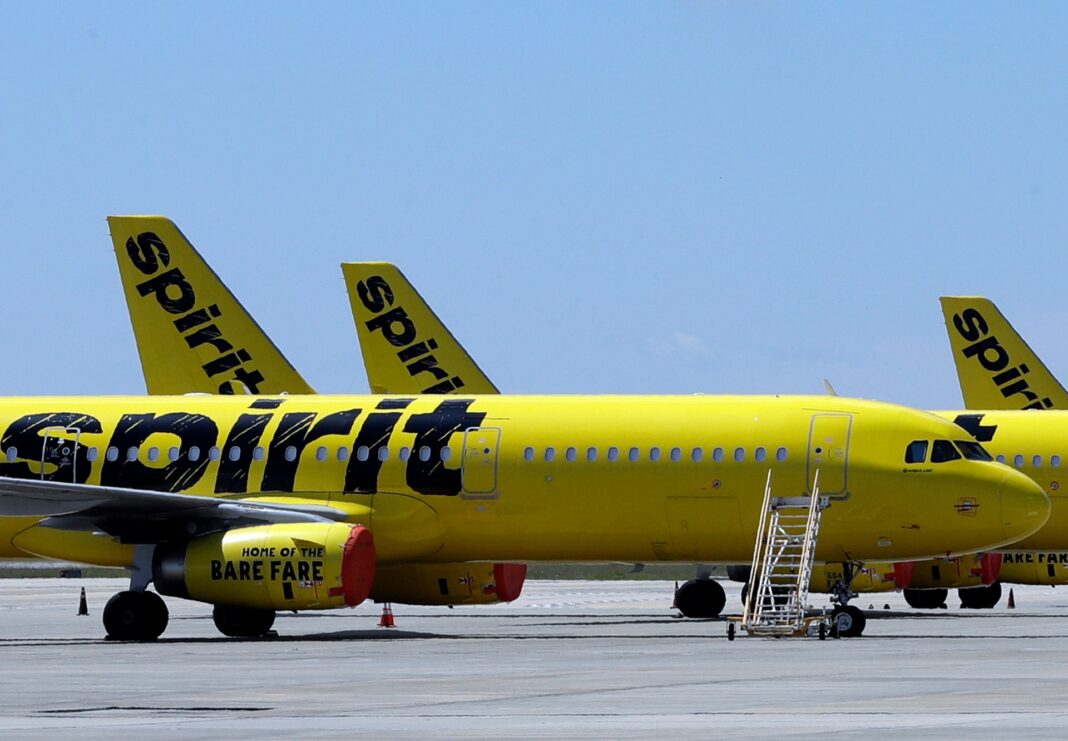Spirit Airlines, the no-frills US travel pioneer, has filed for bankruptcy protection after struggling with years of losses, failed merger attempts and heavy debt levels, the company said.
The Florida-based airline said on Monday that it had pre-arranged a deal with its bondholders to restructure its debts and raise money to help it operate during the bankruptcy process, which it expects to exit in the first quarter of 2025.
It is the first major United States-based airline to file for Chapter 11 bankruptcy protection in more than a decade, after a proposed $3.8bn merger with JetBlue Airways collapsed in January.
Intense competition among US carriers for price-sensitive leisure travellers as well as an oversupply of airline seats in the domestic market hit Spirit’s pricing power. Its average fare per passenger was down 19 percent on a year-on-year basis in the first half of this year from a year earlier.
The carrier said it expected to continue operating its business as normal through the proceedings, and customers could book and fly without interruption.
The Chapter 11 process will not impact wages or benefits of its employees, it said. Its vendors and aircraft lessors will also continue to be paid and will not be impaired, it added.
The company said it expected to be delisted from the New York Stock Exchange in the near term, and that its shares would be cancelled and have no value as part of the restructuring.
Spirit’s shares, which have plunged more than 90 percent this year, were halted on Monday. Shares of rival low-cost carriers Frontier Airlines and JetBlue fell 14 percent and 6 percent, respectively.
Shrinking operations
Spirit, known for its bright yellow livery, is the first major US airline to file for Chapter 11 since 2011.
It has been among the airlines most heavily affected by issues with RTX-owned Pratt & Whitney Geared Turbofan engines, which have forced it to ground multiple aircraft and driven up costs.
Spirit has not posted a full-year profit since 2019. It lost about $360m in the first half of this year despite strong travel demand.
Analysts say a merger with JetBlue would have thrown a lifeline to the company. However, a Boston judge blocked the deal on the grounds that it would reduce competition, raising doubts about the company’s ability to manage looming debt maturities.
Spirit has been shrinking its operations as part of its efforts to cut costs and shore up its finances. It has furloughed hundreds of pilots and delayed aircraft deliveries. It is also selling its planes to boost liquidity.
‘Comprehensive’ restructuring
In its Chapter 11 protection filing in New York, Spirit said a “comprehensive balance sheet restructuring” was expected to reduce total debt, provide increased financial flexibility, position it for long-term success, and accelerate investments.
As part of the restructuring agreement, the company has received commitments for a $350m equity investment from existing bondholders. It plans to reduce its debt load by $795m via a debt/equity swap transaction.
Existing bondholders will also provide $300m in debtor-in-possession financing, which, together with available cash, is expected to support the airline through the Chapter 11 process.
Spirit’s flight attendants’ union said the bankruptcy filing does not change pay, benefits or working conditions for its members. It told flight attendants to continue to work as planned.
The company started out as a long-haul trucking company in 1964 before shifting to aviation around 1983. It offered leisure packages to popular destinations under the name Charter One Airlines and rebranded to Spirit in 1992.
The discount carrier became popular with budget-conscious customers willing to forgo amenities like checked bags and seat assignments.
Ultra-low-cost carriers, which excelled at keeping their expenses low and offering affordable, no-frills travel, have struggled since the COVID-19 pandemic as some travellers prefer to pay extra for more comfortable journeys.
Spirit’s troubles, along with those of some rival budget carriers, have spurred talk among some Wall Street analysts of a flawed business model.







